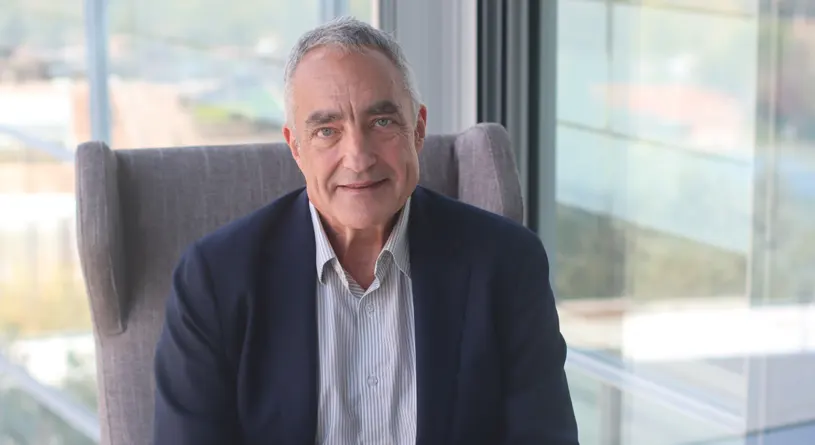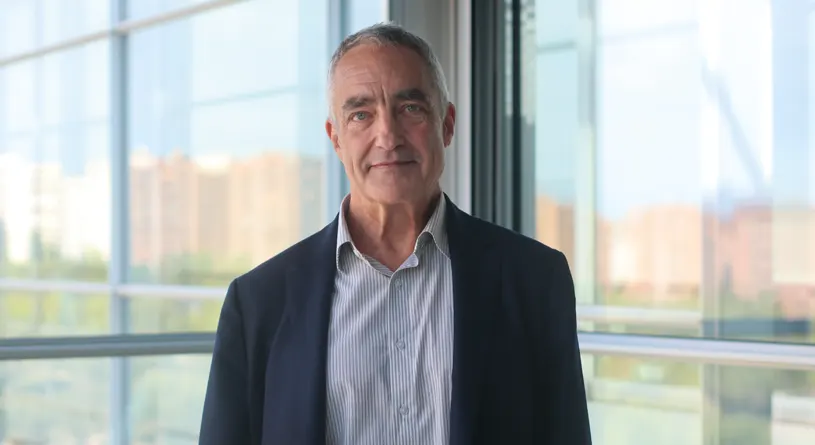Andrew R. Marks: "If i’d started out by saying i wanted to cure heart failure, i wouldn’t have got very far"
Columbia University

Andrew R Marks is Professor and Chair of the Department of Physiology and Cellular Biophysics at Columbia University. He has published over 200 articles contributing new knowledge on the fundamental mechanisms that control muscular contraction, heart function, activation of lymphocytes and cognitive function. He has discovered new causes of human diseases such as heart failure, heart arrhythmias, muscular dystrophy, diabetes and neurodegenerative disorders. In 1989, Dr Marks cloned the calcium channel/ryanodine receptor 1 (necessary for excitation-contraction coupling in skeletal muscle) and he has spent his career working to define its regulation in health and disease. In 2000, he discovered that the intracellular calcium release channels ‘with leaks’ (ryanodine receptors, RyR) contribute to heart failure and fatal arrhythmias, and he later showed that leaky RyR channels contribute to a deterioration in exercise capacity in muscular dystrophy and to cognitive and behavioural anomalies in post-traumatic stress disorder (PTSD) and Alzheimer’s disease. In 2005, he developed a new class of medicines called Rycal® that repair leaky RyR channels and treat heart, muscle and brain disorders in animal models. He is currently conducting trials with Rycal® in patients with a genetic form of muscular dystrophy called ryanodine receptor type 1-related myopathies (RyR1-RM) caused by mutations in RyR channels that cause them to lose calcium and change their muscular function.
Your research has contributed new knowledge on the fundamental mechanisms that control muscular contraction, heart function, activation of lymphocytes and cognitive function. Could you highlight the major advances in this field for us?
For many years it has been observed that patients with heart diseases, particularly those with heart failure, present some sort of cognitive deterioration. They have difficulties in understanding, memory problems, and in normal cognitive function, which could make it difficult for them to, for instance, follow a doctor’s instructions about correctly following their treatment. It has always been assumed that, because the patients were ill, very old and taking many different medicines, that the combined effect of these drugs caused difficulties in normal brain function. However, we thought that, maybe it was possible that the heart failure itself also directly affected the brain.
How could we study that? The best way, we thought, was to use an animal model. In this case, a mouse that in all other aspects is normal and healthy, not an old animal, in which we provoke heart failure to see if there is any effect on the brain, independently of any medication or other factors. What we found was that, when we tested the mouse’s cognitive function, i.e. its ability to perform tests that measure memory and learning, we observed a deterioration in memory and learning in mice with heart failure.
The we asked ourselves: What is the cause? We found different anomalous signals in the brains of the mice. Later, from samples of people with heart failure, we found similar anomalous signals, which suggests that, as well as affecting the heart, heart failure has a systemic effect on the whole body, affecting other organs and one of those organs is the brain. The effect is a deterioration of the capacity to learn and remember, which we think could be a therapeutic target.
One of the causes we discovered was a leakage of calcium within the brain, very similar to a calcium leak in the heart that we had previously discovered. We developed a small-molecule drug that can correct the leak. And when we treated the mice with this drug, we observed that both their cognitive and heart function improved. Finally, we developed a drug that preferentially affects the brain, not the heart, and we were able to show that we could separate the benefit for the heart from that of the brain.
To conclude, we thought that part of the syndrome of heart failure is a deterioration of cognitive function, which could be potentially treatable. And the impact on patients could be an improvement in their quality of life, their capacity to listen and follow their doctor’s instructions about medication, tests and lifestyle changes, which are often quite complicated. We think that this is a completely new aspect in the treatment of patients with heart failure, which, as we know, is the first cause of death in the developed world.

Have the clinical trials reached people?
We have a very similar drug at the clinical trial stage for types of rare inherited heart diseases, one of which is a fast arrhythmia that occurs with exercise and is due to a leak of calcium in the heart. We are currently conducting a trial at the Mayo Clinic and the Academisch Medisch Centrum (AMC) in Amsterdam. If the results are positive, we could contact a pharmaceutical laboratory to undertake a large clinical trial in heart failure patients as the drug could potentially improve heart function, reducing the arrhythmias but also benefiting the brain. The drug that we are testing now could be used both for the heart and the brain.
It is important to understand that when you have a disease as complicated as heart failure, it’s going to affect all parts of the body
The connection between the heart and the brain is increasingly clear.
It is important to understand that when you have a disease as complicated as heart failure, it’s going to affect all parts of the body. So, to give patients optimum treatment, you need to target not only the heart, but also the rest of the body. For instance, another relevant aspect is that patients with heart failure also have weakened skeletal muscle. And when you go to hospital and ask a heart failure patient what concerns them, they don’t say “my heart is weak.” they say, “I am weak”. Another finding we made is that the same process that weakens heart muscle affects skeletal muscle, and skeletal muscle is necessary to breathe, for instance, but also for exercise, and heart failure patients tend to have breathing problems and are very weak. We think this is also a very important aspect for treating the patient. The drug we are developing can also improve skeletal muscle function.
Cardiovascular diseases have become a world-wide pandemic. What can be done in terms of prevention?
Valentin (Dr Valentín Fuster) is a world expert on this. It has been shown that lifestyle choices, such as smoking, diet, exercise and, obviously, cholesterol are determining factors in heart disease. I believe, and I know Dr Fuster focuses on, the importance of being able to identify, measure and modify the risk factors. We work on treating a patient after heart failure has occurred. But it is very important to prevent the heart attack that causes heart failure.
However, I think probably the most difficult thing is making people change their behaviour. That’s why we have to do both things. It would be silly to suppose that we can completely prevent heart failure, which is why we need better ways of treating it. Current treatments focus on the symptoms rather than the cause of heart failure. In my laboratory we are trying to focus on the cause of heart failure, which we believe, in this case, includes this calcium leak. The hope is to develop drugs that are safe, easy to take and inexpensive, which can treat patients and improve their quality of life. And then, if we could combine this with prevention, it would represent a dramatic improvement in the human condition as well as reducing healthcare costs, which are one of society’s great problems.
I think probably the most difficult thing is making people change their behaviour
Have you always been interested in medicine?
The Massachusetts General Hospital in Boston is very famous for its cardiology service and the treatment of heart diseases. So I was interested in this field, and I wanted to be part of the mission to treat heart diseases. But later I decided to focus my career on basic science and my idea was not to treat heart failure or restenosis after coronary revascularization, but to really understand the basic principles of how the heart works. I was very lucky to be able to work on something that eventually became a potential target for treatment. But I would advise young people who are starting out in research, and specifically in the field of the heart, that they should not try to cure heart failure or arrhythmias or something that is very difficult to do which has also been a challenge for many decades; they should study something more basic. Ask an important basic question. Conduct difficult experiments, be vigilant, and joining the dots will follow later. I think that if I’d started out by saying I wanted to cure heart failure, I wouldn’t have got very far. But I began by studying a particular calcium channel and that led to all of the other discoveries













